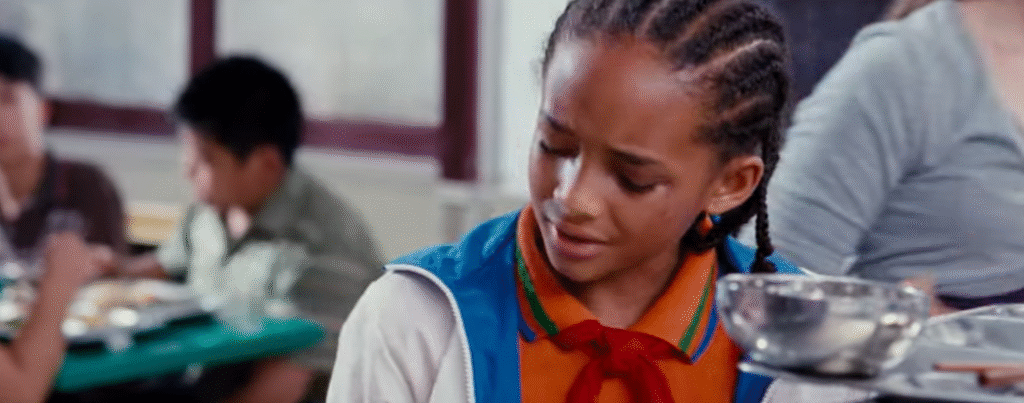| Attribute | Detail |
|---|---|
| Actor Name | Jaden Christopher Syre Smith |
| Character Name | Dre Parker |
| Film Title | The Karate Kid (2010) |
| Character Age | 12 years old |
| Training Style | Traditional Kung Fu |
| Mentor in Story | Mr. Han (portrayed by Jackie Chan) |
| Story Setting | Beijing, China |
| Role Inspiration | Modeled after Daniel LaRusso from the 1984 original |
| Notable Fact | Jaden performed most of his own fight choreography |
| Reference | The Karate Kid (2010) – Wikipedia |

More than just a resuscitation of a beloved franchise, Jaden Smith’s portrayal of Dre Parker in the Karate Kid remake was a reimagining based on emotional fortitude, self-discovery, and cultural displacement. In contrast to many Hollywood reboots, this one did more than just repeat the same plot. Rather, it carefully rewired the emotional stakes by adding thoughtful nuance to a well-known template.
When Dre Parker and his mother relocate from Detroit to Beijing, his life is upended. He is a 12-year-old boy who is intelligent but confused. This move acts as a symbolic unraveling, putting Dre in a strange environment where he finds it difficult to blend in physically, socially, and linguistically. Small hesitations, sidelong glances, and a quiet determination that gradually transforms into fierce self-confidence are just a few of the remarkably distinct emotional beats that Jaden’s portrayal uses to convey that dislocation.
This reboot centers on kung fu instead of the original karate-centric plot. Just that change had cultural and cinematic significance. The narrative choice to examine Chinese martial arts offered new ground, even though some people questioned the decision to stick with the original title. The film highlighted that kung fu was as much about patience and philosophy as it was about physical defense through exquisitely choreographed training scenes and spiritual overtones.
It started with something as commonplace as a jacket. Dre is repeatedly asked to put on and take off his coat by Mr. Han, his enigmatic building maintenance man, who is portrayed by Jackie Chan with worn-out depth. What starts out as a seemingly useless exercise turns into a discipline-related structured metaphor. In addition to conditioning Dre’s body, the repetition gradually restores his self-confidence. Despite its simplicity, this approach was incredibly successful in getting viewers to reconsider how a mentor-student relationship builds trust and discipline.
Smith’s performance was based on layered vulnerability rather than bravado. His quiet infatuation with Meiying, his frustration at being bullied by Cheng and his friends, and his fear of being alone in a foreign country are all depicted with delicate authenticity. His character never veered into caricature thanks to these emotional undertones, which made him feel completely realized. Dre gained respect by getting back up, so he didn’t need to yell to be heard.
The emotional center of the story was the chemistry between Smith and Chan. In contrast to Mr. Miyagi’s quirky charm, Mr. Han was a grieving man. It was particularly poignant when Dre discovers Han intoxicatedly wrecking the vehicle he fixes annually in memory of his departed loved ones. Characteristically, Jaden reacted with empathy rather than shock. A particularly creative departure from the first movie was that scene, which was characterized by shared pain and silence. It transformed the narrative from a straightforward mentorship arc into something profoundly relatable and generational.
Smith’s emotional and physical preparation was what made his performance so powerful. Before filming, he spent months training, mastering traditional kung fu techniques, doing flexibility exercises, and performing fluid and realistic fight choreography. He showed a great deal of focus and effort in the final tournament scenes, especially during the decisive kick that gave Dre the win. The scene, which was set against the backdrop of hardship and injury, inspired as much as it amused.
The film’s contemporary soundtrack, particularly the anthem “Never Say Never,” which was co-performed by Justin Bieber and Jaden Smith, increased its appeal to younger audiences. A cultural echo that went far beyond the movie theater was produced by that song, which was extensively shared on social media and played at innumerable school functions and inspirational montages. It provided Dre Parker with a presence that children could relate to.
Smith has discussed the role’s transformative nature in recent interviews. It served as a testing ground as well as a career launching pad. The film’s producer, his father Will Smith, intended it to be both a tribute and a start over. It was not a coincidental choice to locate Dre in China instead of the US. It was specifically picked to emphasize intercultural understanding and examine how diversity, not conformity, shapes strength.
It’s interesting to note that fans questioned whether Dre Parker was a part of the Cobra Kai universe when the series became well-known. Jaden Smith’s character is still considered canon, according to the Karate Kid: Legends director. Even though it is oblique, this continuity upholds the movie’s position within the larger franchise and recognizes the unique contribution it made. Dre Parker continues to be a symbol of silent strength and flexibility rather than a footnote.
Smith’s subsequent public persona highlights his legacy through the character. Smith has continuously pushed the envelope, from founding the sustainable water company Just Water to using fashion to promote gender inclusivity. His portrayal of Dre, a young child thrust into discomfort who gained strength by learning to stay centered, is where that fearlessness originated. His character development in the movie reflected the attitude he has maintained into adulthood.
The thing that still sticks out about Jaden Smith’s performance is how much it deviated from expectations. Dre Parker took an introspective approach in a genre that is frequently driven by ostentatious conflict and ostentatious retaliation. His strength came from learning to stand motionless, breathe, and flow like the water he once drank from a Taoist well during training, not from dominance. It was a balanced portrayal rather than one of bluster.
